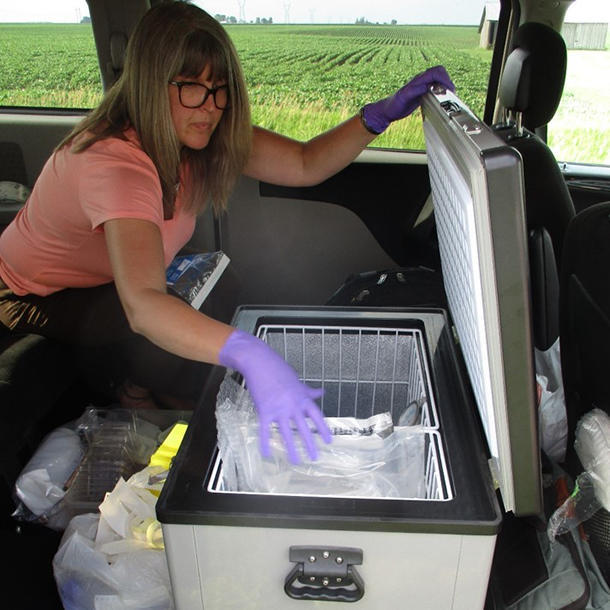Overview
Agricultural exposures including pesticides, endotoxins, and diesel exhaust have been associated with risk of various cancers, although the biological mechanisms underlying these associations are generally not well understood. To address this gap, DCEG investigators in the Occupational and Environmental Epidemiology Branch (OEEB) initiated the Biomarkers of Exposure and Effect in Agriculture (BEEA) study within the Agricultural Health Study (AHS).
Study Team
Background & Purpose
For the BEEA Study, investigators collected biospecimens (blood, urine, buccal cells, and house dust) and updated information about pesticide use and other agricultural exposures from over 1,600 farmers/pesticide applicators. These samples are stored in the BEEA biorepository, a resource for molecular epidemiologic investigations to elucidate the biological mechanisms underlying associations between agricultural exposures and risk of cancer and other chronic diseases. For example, within BEEA, investigators are studying agricultural exposures associated with monoclonal gammopathy of undetermined significance (MGUS), an obligate precursor of multiple myeloma.
Study Results & Select Publications
Relative to the general public, a higher incidence of multiple myeloma has been observed in agricultural workers, including AHS participants. Prevalence of the multiple myeloma precursor monoclonal gammopathy of undetermined significance (MGUS) has also been reported to be elevated in a small subset of male AHS pesticide applicators.
- Glyphosate use and mosaic loss of chromosome Y among male farmers in the Agricultural Health Study.
- Important new evidence for glyphosate hazard assessment. (invited perspective)
- Exposure-Response Observed for Urine Glyphosate Concentrations, Markers of Oxidative Stress
See all BEEA study publications.
